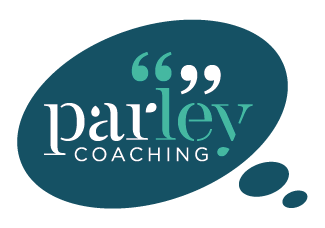 “We can complain because rose bushes have thorns, or rejoice because thorns have roses.”
“We can complain because rose bushes have thorns, or rejoice because thorns have roses.”
Alphonse Karr
What a year 2020 was. One that challenged many principles that had become accepted in our liberal, democratic, capitalist culture. That of self-determination and choice. That of hard work and merit bringing achievement and benefits. That of optimism being the fuel for progress. Where are we now? What have I learnt as a coach about where we might need to be?
The Stockdale Paradox
I tend towards optimism.
I read about Admiral Jim Stockdale in “Good to Great”, the Jim Collins bestseller about the leadership that helps make great companies better than the rest. Stockdale was the most senior US officer in the “Hanoi Hilton” POW camp during the 8 years of his imprisonment. His actions were courageous and inspiring. Collins met him and asked him about what kept him going before asking “Who didn’t make it out?”. “Oh, that’s easy… The optimists. Oh, they were the ones who said, ‘we’re going to be out by Christmas’. And Christmas would come…”.
Collins used the Stockdale experience and wisdom to build the paradox that is at the very least informing for 2021 – to paraphrase Collins, believe that you will prevail in the end but don’t be blind to the reality, confront the challenges.
This made me reflect – I was one of many who were more optimistic earlier last year than the facts responded to. Leadership in the crisis, I saw, required far more than optimism. So are the doomscrollers right? To me, Stockdale was in fact the ultimate optimist – it was always worth acting, making decisions, believing, he never lost his faith. But he was able to draw on trained and inbuilt reserves of practical realism to help him and others survive. He effectively said to himself, this is my opportunity. He created clear, simple, building-block plans towards survival and was optimistic about the outcome if he kept going.
Optimism and science
I have also been reading a lot about Positive Psychology. There were times in 2020 when I needed it. To over-summarise, Positive Psychology is the increasingly important other side of the coin to the more traditional study of the human mind. Rather than limit study to what has gone wrong and, in particular, to focus on mental disease and disorders, Positive Psychology seeks to examine the healthy and examine how they can be happier (and more successful) . For most of us, this is more relevant than traditional Psychology. For coaches, it is gold dust.
The science is still being developed and I will not explain what we know and don’t know (but recommend Martin Seligman’s “The Hope Circuit” as a perfect introduction). One thing though has always stood out for me from my reading and my own experience in teams. That optimistic teams are way more likely to succeed than pessimistic teams.
Why is this?
Imagine yourself when you have been in a team which has a lot of negativity. You may be anxious at work. You are unlikely to feel safe. You don’t understand where your business is going. You start to expect to hear bad news. People talk quietly about failing. People leave. Cynicism, the lazy cousin of healthy scepticism, becomes the norm.
Contrast this with when you have felt safe, when you have understood the vision, even if it is challenging, where you hear the good news as much as the bad, where colleagues talk properly to one another and collaborate around success. Where people join because they believe.
The fine line between the two is perhaps most stark in the goldfish bowl of professional sport. I recommend “The Test” on Amazon about the turnaround of the Australian cricket team post ball tampering scandal. It is an almost perfect reflection on exactly this and, crucially, how teams can shift from one to the other. Sport of course illustrates the importance of confidence, so much so that is has become an almost cliched discussion point for coaches, players and commentators. But the best coaches know confidence is not just a mental state that can be turned and off. For a leader in most businesses to say at the start of 2021, “I am confident that covid will not impact my business and stakeholders” – without more substance – would be like a prisoner stating that they will be out by Christmas. For a leader to have built consensus around a vision that reflects what the pandemic has done and looks for resulting, exciting opportunities, well that sounds like Admiral Stockdale.
Reflect on your leadership and your teams.
Creativity and Resilience
I wanted to focus on two obvious leadership benefits of taking stock and then finding the positive vision.
Science has found there to be a direct correlation between positivity and creativity. If your boss has been positive about your work, you are likely be be more creative. If you work in an environment where the focus is on what is wrong rather than what is right, guess what happens? You become less creative. I believe creativity is often underrated but business needs creativity more than ever. The world is changing (last year faster than any other in my lifetime). Ask yourself whether your team is challenging itself with creative thoughts. Ask yourself what was the last great idea that you had that made an impact on your business. Reflect on the context of your own creativity – on a walk, in the bath, in the pub, in a team meeting where everybody was enthused and safe and encouraged to talk. Strive for greater creativity in 2021 from yourself and your team. A positive environment is the starting point.
Again, it should almost go without saying that optimism breeds resilience, at least once we have circled back on the Stockdale Paradox. Blind optimism certainly does not work in our covid world, the thorns are sharp. I don’t need to cite the many examples of unthought through hopes, dreams and government policy. But it does work to examine the reality and then tell a story of rational optimism, to build a new and credible vision of survival and change and success. And guess what? To be part of a team that does this effectively makes a member more resilient, less likely to be knocked off their stride by the inevitable setbacks.
Can this be learnt?
I would contend that we often get lost in the moment, or in a commentary that fuels negativity and failure. Coaching which focuses on realistic but creative planning for the future, on the person’s and business’s strengths, more than their weaknesses, does help. Many don’t need coaching. I did, but many find the balance in other ways. Find your own way to rejoice in the thorns of our inherited year soon being joined by roses of every colour. This will happen. This is not to deny the sadness and reality.
All the best for 2021 from Parley.
